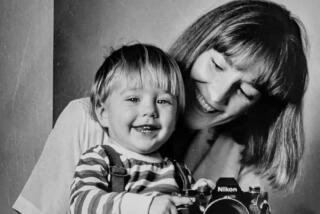Crime reporter found ‘Chicago’ on her beat
Was Maurine Dallas Watkins a playwright masquerading as a Chicago Tribune reporter? Or was the originator of “Chicago” an ink-stained wretch who sold out her reporter’s soul to show biz?
It all depends on whose opinion you believe.
This much is known for sure.
Watkins was born in Louisville, Ky., in 1896, attended high school in Crawfordsville, Ind., went to college at Butler University and went to graduate school at Radcliffe College. While there, she signed up for a playwriting class, the so-called “47 Workshop,” which was taught by George Pierce Baker and included Eugene O’Neill and Philip Barry among its famous students. Many American theater historians regard Baker as the spiritual founder of the first generation of U.S. playwrights.
By 1924, Watkins had moved to Chicago. In February, Watkins showed up at the Tribune looking for work as a reporter.
Whether she was looking to beef up her grit to be a better writer -- or merely attempting a career change -- is unclear. But she was hired to write about crime from a “feminine” perspective, for $50 a week. By all accounts, she made her mark on Page 1 very fast, thanks to a couple of Chicago’s nastier brand of killer women.
One, the glamorous flapper Beulah Annan, shot her lover, Harry Kelstedt, and then took a few moments to play “Hula Lou” on the phonograph as the poor fellow expired in a pool of blood. He had made the mistake of telling Annan he was leaving her. “Woman Plays Jazz Air as Victim Dies” was the Tribune headline.
Annan had a fast-talking lawyer named W.W. O’Brien and gave many press conferences. She got offers of marriage. Six days later, she announced she was “pregnant,” but the trial went ahead anyway, with Annan dressed to the nines in front of the all-male jury. According to Watkins’ Page 1 story, her defense was “we both grabbed for the gun.”
The Tribune had another evocative headline: “Buelah Annan Awaits Stork, Murder Trial.” She was found not guilty and walked away. Nobody talked about any baby again.
But Watkins was already following another crime.
Belva Gaertner was a stylish divorced woman with an inconveniently dead boyfriend named Walter Law -- a young, married automobile salesman. As Watkins’ prose relayed with aplomb, Gaertner was found with the gun that shot the guy and his blood on her body. In her defense, she said she had drunk too much gin to remember what came down.
She got off as well.
With those colorful crimes in her notebook, Watkins quit the Tribune and went back to Baker’s class. In 1926, her new play, “Chicago,” made it all the way to Broadway. Belva and Beulah had become Velma and Roxie. But aside from the change in names, the crimes were pretty much the same.
Watkins went on to a spluttering Hollywood career as a screenwriter, never again reaching the heights of “Chicago.” She routinely denied permission to anyone who wanted to buy the rights to her play.
Only after Watkins’ death in 1969 was “Chicago” sold -- and turned into a musical. When producer Barry Weissler revived the show in 1996, he declared that Watkins’ commentary on crime, media and the legal profession finally had “found its time.”
*
Chris Jones is an arts reporter at the Chicago Tribune, a Tribune company.
More to Read
The biggest entertainment stories
Get our big stories about Hollywood, film, television, music, arts, culture and more right in your inbox as soon as they publish.
You may occasionally receive promotional content from the Los Angeles Times.










